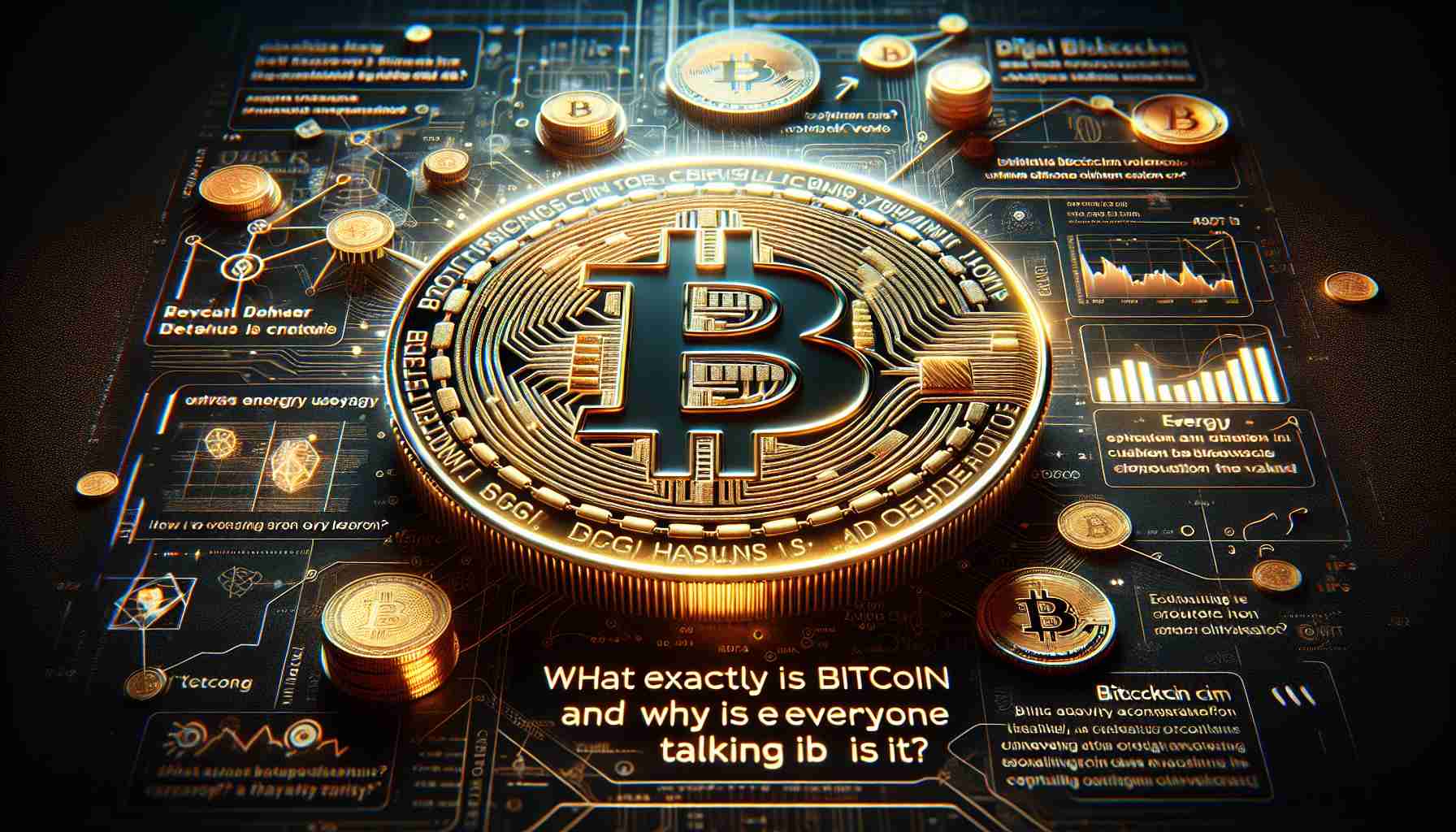In recent years, Bitcoin has surged in popularity and intrigue, leaving many to wonder what exactly this digital currency is and why it’s making such waves. At its core, Bitcoin is a type of cryptocurrency, a form of digital money that uses cryptography for security and operates independently of a central bank. Introduced in 2009 by an anonymous entity known as Satoshi Nakamoto, Bitcoin has become the blueprint for a growing tide of cryptocurrencies.
Bitcoin is unique because it is decentralized. This means that it is not subject to the control of governments or traditional financial institutions. Transactions are verified by a network of computers around the world, referred to as “miners,” who solve complex mathematical problems to validate the transactions and add them to a public ledger called the blockchain. This process is known as “mining,” and it ensures the integrity and chronological order of the blockchain.
One prominent feature of Bitcoin is its limited supply. Only 21 million bitcoins will ever be mined, which contrasts sharply with fiat currencies that can be printed at will by central authorities. This deflationary aspect has fueled the perception of Bitcoin as “digital gold” and a potential hedge against inflation.
However, Bitcoin’s journey has not been without challenges. Its price is notoriously volatile, and its use in illicit activities has drawn scrutiny from regulators worldwide. Yet, its potential for transformative changes in the financial sector remains significant. As such, understanding what Bitcoin is and how it fits into the broader economic landscape is crucial as the world increasingly embraces digital innovation.
The Undisclosed Impact of Bitcoin on Global Economies and Communities
While Bitcoin continues to gain traction as a revolutionary form of money, its influence on people’s lives, communities, and economies globally remains profoundly nuanced and controversial.
Beyond Transactions: Besides acting as a medium of exchange, Bitcoin has emerged as a lifeline in economically unstable regions. In countries experiencing hyperinflation, such as Venezuela, Bitcoin offers an alternative to rapidly devaluing local currencies. Individuals turn to Bitcoin for its store of value and ability to transact across borders without the hindrance of banking system failures.
Community Impacts: In remote areas with limited access to traditional banking, Bitcoin and other cryptocurrencies are facilitating financial inclusion. However, the technological learning curve and infrastructure requirements pose significant challenges, often favoring more technologically savvy or affluent individuals, thus widening the digital divide.
Environmental Concerns: The process of Bitcoin mining, essential for transaction verification, is energy-intensive. Critics argue that the energy consumption is unsustainable, rivaling that of entire countries. This has sparked a debate about the environmental impact of Bitcoin, prompting some miners to adopt renewable energy sources, though adoption remains uneven.
Regulatory Tensions: Bitcoin’s decentralized, pseudonymous nature makes it attractive for illicit activities, eliciting stricter regulatory scrutiny. While some governments see this as a reason to clamp down, others are exploring regulatory frameworks to harness its potential.
As Bitcoin becomes more entrenched in global financial systems, addressing these multifaceted issues is crucial. To learn more about Bitcoin and cryptocurrencies, consider exploring CoinDesk and CoinTelegraph.





















